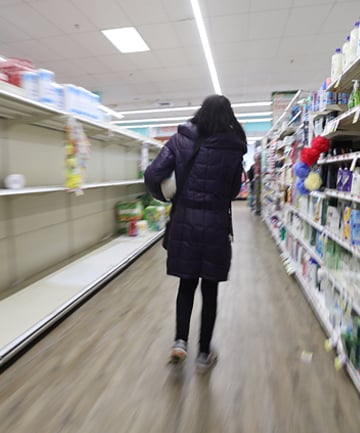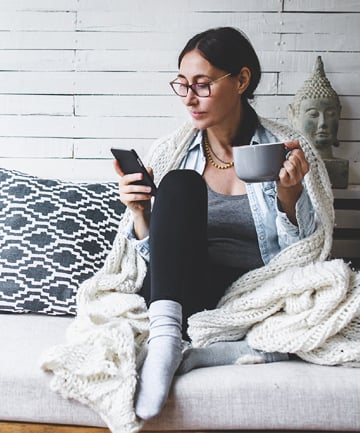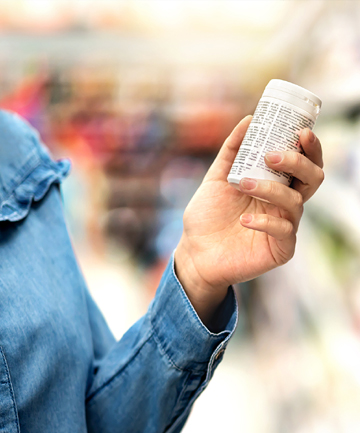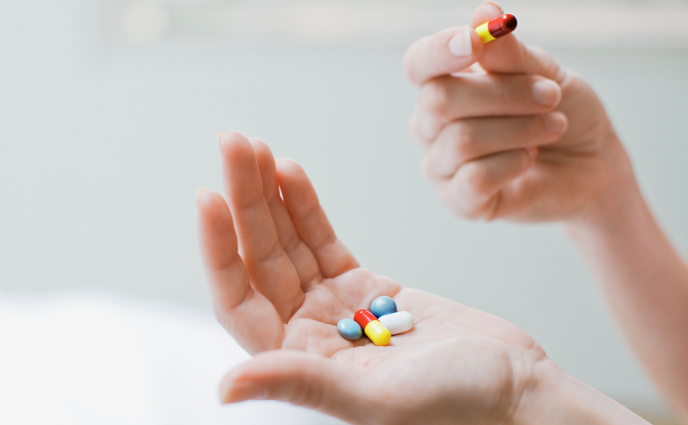Sheryl Buchholtz-Rosenfield is a board-certified registered nurse in geriatrics and has worked in the post-acute care industry for over 30 years. She even served as a first responder volunteer in triage for September 11th. In other words? She's pretty uniquely qualified to answer all of our COVID-19 questions.
Since most of us are probably pretty familiar with the basics (such as social distancing, washing your hands for 20 seconds at a time, et al), we focused on more specific lines of questioning, such as "How do you care for yourself at home if/when you get sick?" and "What can we do for the older relatives that we're all super worried about?" Read on to see Buchholtz-Rosenfield's very helpful insights and tips.
TotalBeauty recommends all readers comply with CDC guidelines and remain as isolated as possible during this urgent time. Visit the Centers for Disease Control at CDC.gov or the World Health Organization at Who.int for the latest information on the coronavirus and learn what you can do to stop the spread.
Image via Imaxtree
"Italy is a poor example of handling the situation, as most people did not get any medical interventions," says Rosenfield. The key, she says, lies in seeking medical attention at the right time: "The CDC and the healthcare system is asking people, especially those under 50, to wait until they display 'real' symptoms of the virus that cannot be managed at home."
Buchholtz-Rosenfield also reminds us, "80 percent of people with a positive COVID test will be fine and do not need significant interventions, other than management of their temperature with acetaminophen (or similar), hydration and avoiding contact with other people."
Still, even if you're not racing to the local ER at first sign of a cough, it is important to keep your doctors informed. "I would reach out to a physician or GP to go on record with your condition," advises Buchholtz-Rosenfield.
Image via Al Bello/Getty Images News/Getty
Buchholtz-Rosenfield says your priorities should be: "Management of your temperature with acetaminophen (not anti-inflammatories), good hydration, zinc supplements, and rest and avoidance of others." And if you're starting to get a little cabin fever? "It's a good time for streaming or taking classes online."
We also asked Buchholtz-Rosenfield if she had any tips for opening airways for those suffering from shortness of breath. But she says that this definitely falls into the aforementioned category of "'real' symptoms of the virus that cannot be managed at home:" "If you or someone in your home is experiencing difficulties breathing, that is the time to seek real medical interventions."
Image via Jasmina007/E+/Getty
"Nutritionists and others are recommending zinc, vitamin C and lots of fluids," advises Buchholtz-Rosenfield. Bored of popping pills and mixing mysterious powders into your morning smoothies? "Fresh vegetables and fruits are also a good source of energy and vitamins," says Buchholtz-Rosenfield.
Image via Tero Vesalainen/iStock/Getty Images Plus/Getty
"Yes!" says Buchholtz-Rosenfield, "Crazy talk about drinking fluids to move the virus from your mouth to your stomach to kill it? WOW." (Though you should still be drinking those fluids!)
Buchholtz-Rosenfield also says there's also little real world validity to the whole "holding your breath for 20 seconds test." As she puts it, "If those actually worked, we wouldn't be treating as many cases and would just be telling people to drink water and hold their breath."
Image via Thanasis Zovoilis/Stone/Getty









